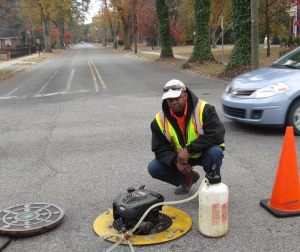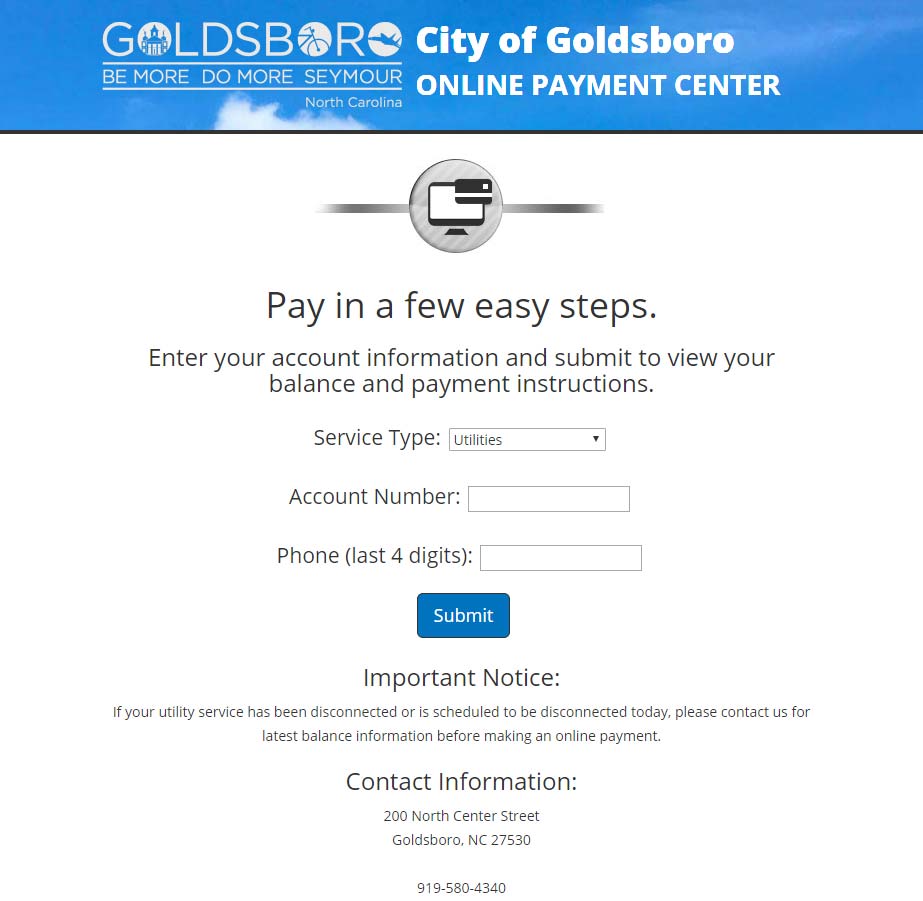Water Distribution & Collections
Formerly called Utility Maintenance, the Distribution & Collections Division, is responsible for the upkeep and maintenance of the City’s potable water distribution system and sanitary sewer collection system and is charged with ensuring compliance with numerous stringent state regulations associated with those systems.
Typical tasks within this division include the administration of the City’s backflow prevention, water and sewer line repair and maintenance, the installation of water and sewer taps, responding to and cleanup of sewer spills, water valve installation and replacement, water meter installation, repair and maintenance, fire hydrant maintenance and the procurement and warehousing of parts and equipment for other divisions within the public works department.
These employees are on call 24 hours a day, seven days a week to respond to emergencies.
Grease Trap Program
The City’s Sewer Use Ordinance contains information on the guidelines for what is allowed to be discharged into the City’s sewer system. Part of the Sewer Use Ordinance, the Grease Trap Program addresses the problems created by grease in the sewer collection system. The purpose of the Grease Trap Sanitary Manhole Overflow Program is to aid in the prevention of sanitary sewer overflows and blockages from the accumulation of fats, oils, and greases in to the sewer collection system from non-domestic establishments, particularly in food preparation and food serving facilities.
Approximately 50% to 80% of all sanitary sewer overflows are caused by accumulation of fats, oils, and greases discharged from food preparation and service establishments. For additional information on this program, call the Building Inspections Department at 580-4346 if you have questions on grease trap installation, or the Pretreatment Coordinator at 735-3329, ext.103, if you have questions on grease trap reports or maintenance of existing grease traps.
Each year the City prepares a report, the Sewer Performance Annual Report, on its Water Reclamation Facility and its sewer collection system. The report indicates if there were any problems or violations during the past year, such as grease blockages that caused a sanitary sewer manhole to overflow. Additional information regarding the City’s wastewater treatment may be addressed under the Frequently Asked Questions.

Grease-clogged pipe: residential customers can help prevent grease accumulation in the sanitary sewer system by properly disposing of cooking oil and grease. Cooking oil and grease can be collected in containers with sealed lids and disposed of in the solid waste garbage. Food scraps can be disposed of as solid waste.

(NEW) UPDATED TESTERS LIST
To report a water leak or sewer spill call:
During Business Hours
919-739-7437
After Hours Emergencies
919-734-8674
IMPORTANT NOTICE
Wipes Personal Hygiene Products Clog Sewer Lines/
Many baby and adult personal hygiene products, along with household wipes and cleaning towelettes, are labeled both DISPOSABLE and FLUSHABLE. While these products may be marketed as a convenience item in this way, the truth is these types of items cause blockages and service problems, not only in the sewer line on your property, but also the public sewer system and pump stations. This is primarily because, unlike toilet paper, these products DO NOT break down once they are flushed.
Since they do not break down, they collect and cause blockages in your on-site sewer, especially older pipelines that may already have existing greases, roots, or other obstructions. A repair of the on-site sewer line can leave the home or business owner with a very costly sewer repair.
When these products are introduced into the public sewer system, they collect and cause larger obstructions and clogs in the main sewer lines and even get tangled in the pump stations-requiring expensive repair or replacement of equipment.
What We Can All Do To Help...
ONLY flush toilet paper; more importantly, NEVER flush the following:
| Disinfecting/Surface Wipes
Baby Wipes Jewelry Wipes Cosmetic Wipes Disposable Diapers or Liners Cotton Swabs Toilet Cleaning Pads |
Mop or “Swifter” Refills
Paper Towels Pet Care Wipes First Aid Wipes Bio-pads (nursing home, home health care, etc.) Feminine Hygiene Products ANY Moist Type Towelettes |



